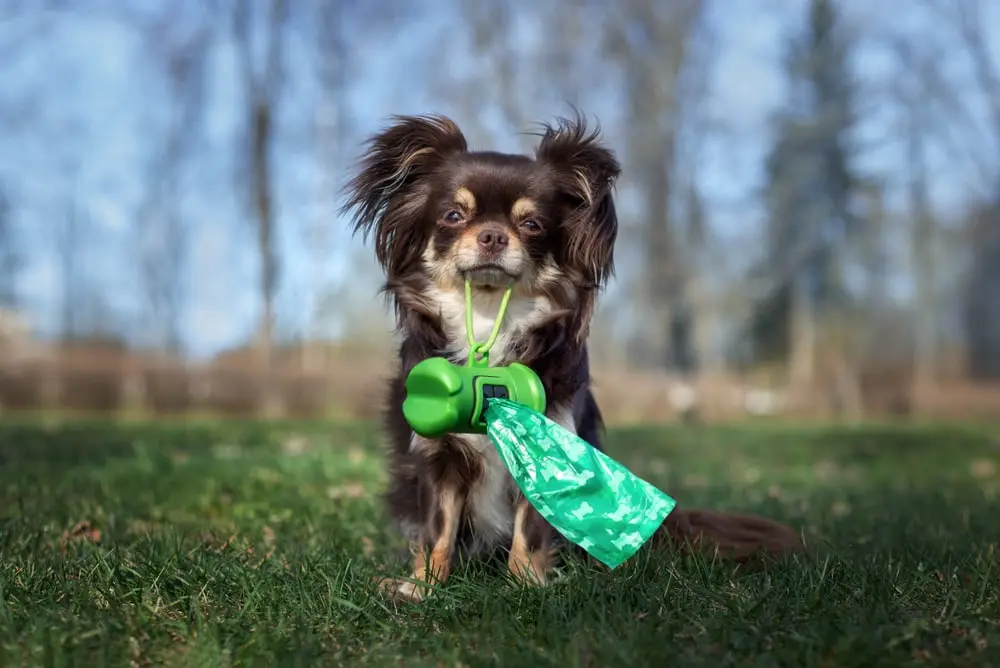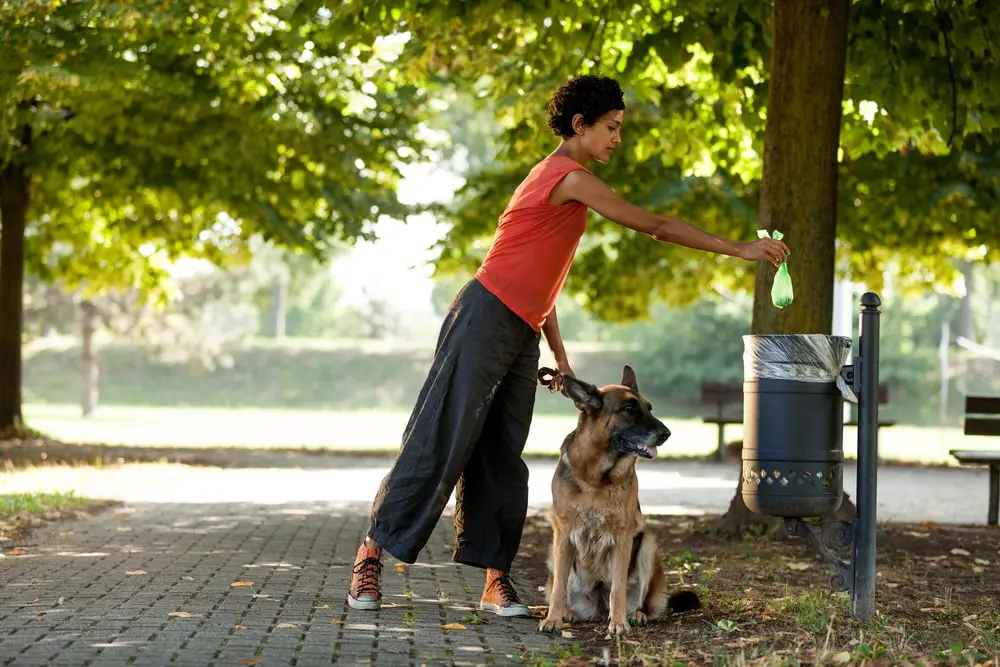PET BEHAVIOR
Why Do Dogs Eat Poop? Get Into Your Dog’s Mind
- Dogs may eat cat poop for several reasons, including curiosity, attraction to the smell, a potential nutritional deficiency, or boredom.
- Although dogs can eat small amounts of cat poop without serious consequences, there’s a risk of illness, inflammation, and intestinal blockage.
- There are many preventative methods you can take to help ensure your dog doesn't ingest cat poop.
- A MetLife Pet insurance policy can help save you money if your dog eats something that might make them sick, like cat poop.
Your first impulse when you see a dog eating poop may be to look away or fuss with your pet. Of all the habits dogs have, coprophagia — the habit of eating poop — is one that can leave pet parents very flustered.
There are psychological and physiological reasons why dogs eat poop. Let’s walk through what’s going on in your pet’s head, how to stop them, and when you may want to get your veterinarian involved.
Reasons Why Dogs Eat Poop
There are several reasons why dogs eat their poop (or another dog’s droppings) so it may take some investigative work on your part to figure out why. Let’s go over some of the common reasons.
Evolutionary behavior
Luckily, it seems pet experts have been asking the same question for years, and they have some answers for us. Several studies show that poop eating is actually common among domestic dogs. One study found that roughly one in six dogs observed were considered “serious” poop eaters — meaning they were caught eating poop at least five times.¹
While it seems repulsive to us, our canine companions don’t see poop eating as something to be ashamed of. Some experts believe dogs inherited coprophagia from their ancestors so their scent isn’t left behind for predators to find.¹ This could be why a healthy dog may eat the poop of a senior or sick dog in multiple dog households. Another reason may be that ancient dogs were scavengers and they can view other animals' feces as simply that: something to scavenge.
Stage of life
Sometimes, depending on the stage of life a dog is in, they may eat poop. Mother dogs might lick their puppies to encourage them to relieve themselves and then she may eat their poop to clean up her den.¹ Puppies can follow moms' lead by eating their own poop (autocoprophagia) or eating poop from other dogs (allocoprophagia). For this reason, puppies may be more likely to eat poop than an adult dog.¹
Keep in mind that dogs don’t have to eat poop to get key nutrients like some animals do, such as rabbits.¹ If your dog is a puppy, you can nip this behavior in the bud early knowing that eating their poop isn’t something they have to do. Focus on training them until they grow out of putting everything in their mouth.
Anxiety
Sometimes human behavior may cause anxiety in dogs. Dogs who are isolated or confined to a space for extended periods of time tend to eat poop more than pets who are kept close to their human companions.¹ These dogs may eliminate indoors because it’s their only option and then eat their feces to clean up their sleeping area, similar to what they saw their mothers do.
Additionally, dog owners who use harsh house training methods may cause anxiety in pets. Dogs may choose to eat the evidence after an accident to avoid being punished, only to be punished for eating the poop.¹ This cycle can be difficult to break once it starts.
These sorts of anxious behaviors are common in rescue and shelter dogs who became used to restrictive or abusive situations.¹ Time and understanding are needed to care for these anxious dogs if you choose to adopt one.
Boredom and curiosity
Dogs love to explore, and a bored dog can come up with all sorts of ways to entertain themselves. Puppies and young dogs are notorious for mischievous behavior because of their curious nature, so poop isn’t off the table for them. A dog may also eat poop just to seek their owner’s attention.
Other animals' fecal matter — especially horses, chickens, and cats — carry undigested food that your pet may try to eat because it smells appealing to them.¹ Anything in your yard or at the dog park that’s laying around can be considered a quick snack if your dog is left to their own curiosity.
Medical issues
With all of this in mind, most adult dogs shouldn’t be eating poop. If they are, you may want to consult a vet to rule out potential health problems your dog may have such as:¹
- Parasites
- Nutritional deficiencies
- Malabsorption syndrome
- Diabetes
- Cushing’s disease
- Thyroid diseases
What do all of these things have in common? They can all increase your dog’s appetite. While unlikely, an increase in appetite may cause some adult dogs to eat poop. Also, certain prescriptions your dog may be taking — specifically steroids — can increase their appetite.¹
You may need to take your dog to the vet if eating poop is a regular occurrence to rule out any of these health conditions.
Can a Dog Get Sick From Eating Cat Poop?
If you’re the proud pet parent to a cat and a dog, then you may have caught your dog eating cat poop. Your dog shouldn’t make a habit of eating cat poop; otherwise, they could get sick from any bacteria or parasites present in the poop.²
Cat feces (and all animal feces) carry bacteria, like salmonella, that can be transmitted to humans and dogs. This bacteria may also be in the used kitty litter, which can get into your dog's eyes and coat. Plus, kitty litter can create intestinal blockages if your dog eats too much of it.
How To Stop a Dog From Eating Poop
There are a few things pet parents can do to get their dog to stop eating poop. First, you want to rule out any underlying medical issues your dog may have. You and your vet may utilize the following strategies to help stop your dog from eating poop:¹
- Discussing your dog's nutrition to make sure they get a balanced diet that meets their needs
- Adding vitamin supplements for any deficiencies
- Adding enzyme supplements to help with digestion
- Prescribing taste-aversion products to make poop less appealing
After your vet has addressed any medical issues, you can tackle the behavior training with these strategies:
- Take inventory of what and how you're feeding your dog, and how often you’re walking them. See if there are any products or equipment you could use to make these tasks easier.
- Consider investing in dog training classes to teach your dog commands like “leave it” and “come” so you both can break the habit together.
- Inspect their living area often, including your yard, and clean up any poop before your dog can get to it. If you own a cat, keep their litter boxes clean or in an area your dog can’t access.
You may need to supervise your dog for a while to figure out how to best break this stinky habit.
Put MetLife Pet Insurance in Your Back Pocket
The answer to “Why does my dog eat poop?” is complicated, and it can be for a number of reasons depending on the dog. Even though coprophagia is a normal behavior that can be corrected, it can expose your dog to bacteria and other gnarly microorganisms that aren’t good for them. Putting a dog insurance policy from MetLife Pet in your back pocket may be worth it to help you save money at the vet in case they do get sick.3
MetLife Pet Insurance also provides coverage for multiple pets under one policy with a shared deductible, making it easier for you to juggle those vet bills. Get a free quote today to find out more.
Protect your Dog
¹ “Why Dogs Eat Poop and How to Stop It,” American Kennel Club
² “Why Does My Dog Eat Cat Poop?,” American Kennel Club
3 Provided all terms of the policy are met. Application is subject to underwriting review and approval. Like most insurance policies, insurance policies issued by IAIC and MetGen contain certain deductibles, co-insurance, exclusions, exceptions, reductions, limitations, and terms for keeping them in force. For costs, complete details of coverage and exclusions, and a listing of approved states, please contact MetLife Pet Insurance Solutions LLC.
Coverage underwritten and issued by Independence American Insurance Company (“IAIC”), a Delaware insurance company, headquartered at 11333 N Scottsdale Rd, Ste 160, Scottsdale, AZ 85254 or Metropolitan General Insurance Company (“MetGen”), a Rhode Island insurance company, headquartered at 700 Quaker Lane, Warwick, RI 02886. Coverage subject to restrictions, exclusions and limitations. Application is subject to underwriting review. See policy or contact MetLife Pet Insurance Solutions LLC for details. MetLife Pet Insurance Solutions LLC is the policy administrator for this coverage. The entity may operate under an alternate, assumed, and/or fictitious name in certain jurisdictions as approved, including MetLife Pet Insurance Services LLC (New York and Minnesota), MetLife Pet Insurance Solutions Agency LLC (Illinois).
L0323029827[exp0325][All States][DC,GU,MP,PR,VI]


